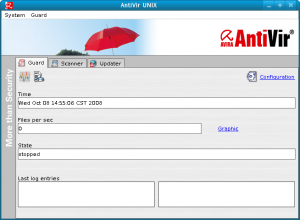Here are three recommended free antivirus software options for Linux environments: 1. **ClamAV**: ClamAV is an open-source antivirus engine designed for detecting trojans, viruses, malware, and other malicious threats. It's widely used on mail servers as a scanning tool. 2. **Comodo Antivirus for Linux**: This is a robust antivirus solution that provides real-time protection against various threats. It includes features like file scanning, memory scanning, and automatic updates. 3. **Sophos Antivirus for Linux**: Sophos offers a free version of its antivirus software for Linux, which is effective in detecting and removing viruses. It supports on-access scanning and can be easily integrated into existing systems. These tools can help enhance the security of your Linux environment without any cost.
Although the security level of Linux systems is quite high, and the possibility of virus infection is minimal, for personal use, there's no need to install any antivirus software. However, if it’s a Linux server, more caution is required. This article introduces three free Linux antivirus software options designed for desktop environments, which may be helpful to those in need.
Due to Linux's excellent user permission management system, viruses are often the last concern for Linux system administrators. In the past, antivirus software on Linux was mainly designed for corporate mail and file servers. Nowadays, with the growing number of Linux desktop users, these users benefit from Linux's strong natural immunity to viruses, but still need antivirus software to clean up Windows viruses brought in via the network or USB drives. Although these viruses cannot affect the Linux system at all, preventing their further spread is certainly not a bad thing.
Here, we introduce three antivirus software options suitable for desktop users. What does "suitable" mean? One criterion is that they can be used for free, and another is that they have a graphical user interface. For them, we will conduct simple tests and evaluations in three categories: installation configuration, antivirus performance, and graphical interface, with a maximum score of 5 points for each category.




